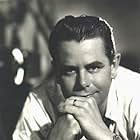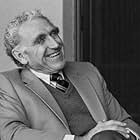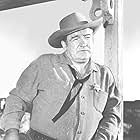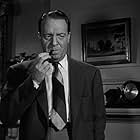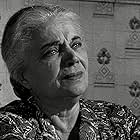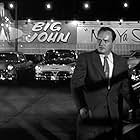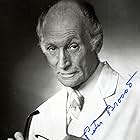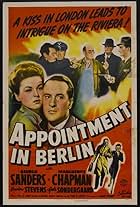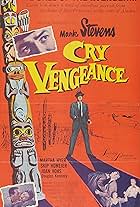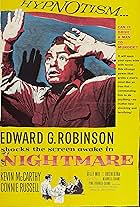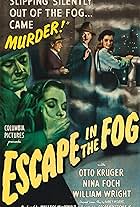AVALIAÇÃO DA IMDb
6,6/10
1,6 mil
SUA AVALIAÇÃO
Adicionar um enredo no seu idiomaTreasury Department agent Frank Warren takes on the case of a mob leader who has evaded paying taxes on his ill-gotten gains.Treasury Department agent Frank Warren takes on the case of a mob leader who has evaded paying taxes on his ill-gotten gains.Treasury Department agent Frank Warren takes on the case of a mob leader who has evaded paying taxes on his ill-gotten gains.
- Direção
- Roteiristas
- Artistas
David Bauer
- Stanley Weinburg
- (as David Wolfe)
Patricia Barry
- Muriel Gordon
- (as Patricia White)
Richard Bartell
- Bailiff
- (não creditado)
Peter Brocco
- Johnny
- (não creditado)
Avaliações em destaque
A offbeat film noir from 1949 starring Glenn Ford & Nina Foch. Ford is a treasury agent hot on the heels of gathering information to convict a criminal through unorthodox means (he's building a case for tax evasion). Using dogged tactics to track down the bookmakers who keep the convicts' tabs (& confiscating their ledgers in the process), Ford's men, which include James Whitmore (in his screen debut), are a tight, professional lot but when the main con gets wind of Ford's activities, the usual goons are sent out to put pressure on the powers that be to lay off (even threatening Ford's wife, Foch, in the process). If only Ford can find one guy to testify & finally get the ball rolling in the right direction which proves easier said than done. That becomes the driving force of this story as Ford's tenacity is taken to the breaking point as his search becomes more desperate & dire. Running under 90 minutes, this film plays like an offshoot of the Charles Martin Smith character from The Untouchables (the books guy who figures out Capone can be got for fixing his books) which even though there aren't any gunfights to speak of, the tension is palpable & distinct. Co-starring Leo Penn (father of Sean, Michael & Chris) in a small role.
Glenn Ford gives a believable performance in this fast paced film with an all too short role for the underrated Nina Foch. Great direction from Joseph H. Lewis.
I'm not sure why this film was entitled The Undercover Man since it did not involve any law enforcement infiltrating organized crime to bring a case against some criminals. Maybe it was the sardonic humor of producer Robert Rossen and director Joseph H. Lewis since it does involve Treasury agents Glenn Ford, James Whitmore, and David Wolfe operating out of a rather dingy apartment going over syndicate books to make an income tax case against, 'the Big Fellow'.
After the success they had with taking Al Capone down this way, going after the finances of criminal enterprises has been a tried and true way to go in these matters for law enforcement.
The agents are a good if colorless lot, the real spice in The Undercover Man are some of the various character roles cast by Rossen and Lewis. Barry Kelley is the syndicate lawyer, a very confident fellow right up to the end, he's one you'll remember. Also Anthony Caruso and his family, mother Esther Minciotti, wife Angela Clarke and daughter Joan Lazer. He keeps the tallies for one the syndicate's numbers parlors, but he's tasted the high life and now has a mistress as well in stripper Kay Medford, her first credited screen role. He's memorable too as the luckless Caruso is gunned down in the street.
Another syndicate bookkeeper is Leo Penn and his wife Patricia Barry who flees after Caruso is killed. You'll know Leo because of his famous two time Oscar winning son Sean. The family resemblance is unmistakable.
The good guys are kept colorless until almost the end. They patiently billed their case with numbers and handwriting experts who tell them where to look for clues and suspects. In the end however Glenn Ford does have to resort to the gun to get out of a tight spot.
Ford's allowed a little personal life and a bit of family crisis when he thinks he could be putting wife Nina Foch in harm's way. It's a bit of a diversion showing these guys are as human as some of the people they're dealing with.
But The Undercover Man is best when concentrating on the bad and the luckless. Pay particular attention to Caruso, Kelley, and Medford. It's a good if somewhat unknown noir classic.
After the success they had with taking Al Capone down this way, going after the finances of criminal enterprises has been a tried and true way to go in these matters for law enforcement.
The agents are a good if colorless lot, the real spice in The Undercover Man are some of the various character roles cast by Rossen and Lewis. Barry Kelley is the syndicate lawyer, a very confident fellow right up to the end, he's one you'll remember. Also Anthony Caruso and his family, mother Esther Minciotti, wife Angela Clarke and daughter Joan Lazer. He keeps the tallies for one the syndicate's numbers parlors, but he's tasted the high life and now has a mistress as well in stripper Kay Medford, her first credited screen role. He's memorable too as the luckless Caruso is gunned down in the street.
Another syndicate bookkeeper is Leo Penn and his wife Patricia Barry who flees after Caruso is killed. You'll know Leo because of his famous two time Oscar winning son Sean. The family resemblance is unmistakable.
The good guys are kept colorless until almost the end. They patiently billed their case with numbers and handwriting experts who tell them where to look for clues and suspects. In the end however Glenn Ford does have to resort to the gun to get out of a tight spot.
Ford's allowed a little personal life and a bit of family crisis when he thinks he could be putting wife Nina Foch in harm's way. It's a bit of a diversion showing these guys are as human as some of the people they're dealing with.
But The Undercover Man is best when concentrating on the bad and the luckless. Pay particular attention to Caruso, Kelley, and Medford. It's a good if somewhat unknown noir classic.
I'm wondering if there could be anything more boring than an IRS agent. In "The Undercover Man" from 1949, Glenn Ford plays an IRS agent (I doubt any of them are that good-looking) on a case with his cronies, one played by James Whitmore in his film debut. The film is directed by Joseph Lewis, who directed some very impressive noirs. This film has noirish elements.
Ford is Frank Warren, who is on the trail of someone called "The Big Fellow" as he attempts to get him on a tax evasion charge. If you haven't guessed, this is based on the Al Capone story. The agents walk around the Italian area of Chicago looking for someone who will talk. However, everyone the agents approach to testify or give evidence ends up dead.
These films tend to be pretty dry. This one is enlivened somewhat by Nina Foch as Warren's long-suffering wife, who has had to get used to her husband being away for long periods of time, and by some good scenes. One of the bookkeepers for the Big Fellow, Salvatore Rocco, played by Anthony Caruso, is gunned down in front of his daughter (Joan Lazar). When Warren goes to his funeral, he is called a murderer. Warren is tempted to give up and retire, but it's Rocco's mother who convinces him to keep fighting.
Barry Kelley plays the syndicate lawyer, who is sure no one can touch his client. A total slimeball, he does an excellent job in the role. Ford is right for an IRS agent - serious with no sense of humor.
There is another little guy in the mob that the IRS agents want, but he and his wife take off. The roles are played by Leo Penn and Patricia Barry. Barry I only recognized by voice. And even if you didn't know anything about Leo Penn, you'd know he was Sean's father just by looking at him.
Ford is Frank Warren, who is on the trail of someone called "The Big Fellow" as he attempts to get him on a tax evasion charge. If you haven't guessed, this is based on the Al Capone story. The agents walk around the Italian area of Chicago looking for someone who will talk. However, everyone the agents approach to testify or give evidence ends up dead.
These films tend to be pretty dry. This one is enlivened somewhat by Nina Foch as Warren's long-suffering wife, who has had to get used to her husband being away for long periods of time, and by some good scenes. One of the bookkeepers for the Big Fellow, Salvatore Rocco, played by Anthony Caruso, is gunned down in front of his daughter (Joan Lazar). When Warren goes to his funeral, he is called a murderer. Warren is tempted to give up and retire, but it's Rocco's mother who convinces him to keep fighting.
Barry Kelley plays the syndicate lawyer, who is sure no one can touch his client. A total slimeball, he does an excellent job in the role. Ford is right for an IRS agent - serious with no sense of humor.
There is another little guy in the mob that the IRS agents want, but he and his wife take off. The roles are played by Leo Penn and Patricia Barry. Barry I only recognized by voice. And even if you didn't know anything about Leo Penn, you'd know he was Sean's father just by looking at him.
Before bedecking the noir cycle with two of its gems - Gun Crazy and The Big Combo - Joseph H. Lewis exercised his talents on The Undercover Man. Scant surprise that it falls short of those two movies, the first of which boasted Peggy Cummins as Annie Laurie Starr and the second John Alton as director of photography. While the dependably gifted Burnett Guffey pinch-hits for Alton, the absence of any major female role makes a Cummins unnecessary (though still missed). So there's no countervailing axis to balance out the star, Glenn Ford.
While Ford contributed yeoman's work in some indispensable titles, from Gilda to The Big Heat and Human Desire, he always stood at odds to the sardonic cool that was the hallmark of male leads in the cycle. In picture after picture, he unpacked the same old angst and wore it like a hair shirt. When his reasons were up there on the screen - a torch for Rita Hayworth, a blood-lust for revenge - he brought an uncommon intensity to roles that a flippant approach would have watered down.
But in The Undercover Man he turns a glorified civil-service job into the stuff of agony. He's an undercover government agent; his worn-down wife, Nina Foch, joins him occasionally on his assignments but for the most part stays at home near Washington, D.C. where she's come to accept his extended absences with a long face. Ford and his partner James Whitmore find their frequently flipped Treasury credentials carry little weight in big-shouldered Chicago, where the syndicate's ruthlessness strikes witnesses blind and dumb even when victims are gunned down in broad daylight. And the mob's lavishly remunerated mouthpiece, Barry Kelley, impudently taunts Ford for his futile crusade against the never seen Big Fellow (as he's affectionately known around town). But in the dogged tradition of the Feds in movies like The House on 92nd Street and T-Men, Ford keeps slogging away until he finds a chink in the silent armor....
The Undercover Man starts out in the detail-cluttered, reverential way of so many of these para-patriotic films, but about halfway through Lewis finds his stride and eschews hagiography for moviemaking. A tense and violent sequence among the street stalls of Chicago's Italian neighborhood, where a turncoat gangster is chased and killed in front of his little daughter, delivers a welcome jolt after all the handwriting experts and accountants' ledgers. But the movie always slinks back to Ford, suffering valiantly - he's such an irresistible target it's no wonder Kelley can't help needling him. And it's Kelley's sly, smug performance that lends The Undercover Man the subversive grit that, in the absence of Cummins (or any of her sisters), it sorely needs.
While Ford contributed yeoman's work in some indispensable titles, from Gilda to The Big Heat and Human Desire, he always stood at odds to the sardonic cool that was the hallmark of male leads in the cycle. In picture after picture, he unpacked the same old angst and wore it like a hair shirt. When his reasons were up there on the screen - a torch for Rita Hayworth, a blood-lust for revenge - he brought an uncommon intensity to roles that a flippant approach would have watered down.
But in The Undercover Man he turns a glorified civil-service job into the stuff of agony. He's an undercover government agent; his worn-down wife, Nina Foch, joins him occasionally on his assignments but for the most part stays at home near Washington, D.C. where she's come to accept his extended absences with a long face. Ford and his partner James Whitmore find their frequently flipped Treasury credentials carry little weight in big-shouldered Chicago, where the syndicate's ruthlessness strikes witnesses blind and dumb even when victims are gunned down in broad daylight. And the mob's lavishly remunerated mouthpiece, Barry Kelley, impudently taunts Ford for his futile crusade against the never seen Big Fellow (as he's affectionately known around town). But in the dogged tradition of the Feds in movies like The House on 92nd Street and T-Men, Ford keeps slogging away until he finds a chink in the silent armor....
The Undercover Man starts out in the detail-cluttered, reverential way of so many of these para-patriotic films, but about halfway through Lewis finds his stride and eschews hagiography for moviemaking. A tense and violent sequence among the street stalls of Chicago's Italian neighborhood, where a turncoat gangster is chased and killed in front of his little daughter, delivers a welcome jolt after all the handwriting experts and accountants' ledgers. But the movie always slinks back to Ford, suffering valiantly - he's such an irresistible target it's no wonder Kelley can't help needling him. And it's Kelley's sly, smug performance that lends The Undercover Man the subversive grit that, in the absence of Cummins (or any of her sisters), it sorely needs.
Você sabia?
- CuriosidadesJames Whitmore debuted in this film in Chicago, Illinois and on television on the same day - March 20, 1949 - in the Philco Television Playhouse hour-long murder drama "Dinner at Antoine's," starring Steve Cochran, also in his television debut.
- Erros de gravaçãoFrank asks the Desk Sergeant where Rocco lives - while holding and looking right at the police record with his address typed upon it.
- Citações
Frank Warren: Do you know this man?
- ConexõesReferenced in Sorveteiro em Apuros (1950)
Principais escolhas
Faça login para avaliar e ver a lista de recomendações personalizadas
- How long is The Undercover Man?Fornecido pela Alexa
Detalhes
- Data de lançamento
- País de origem
- Idiomas
- Também conhecido como
- Destino de fuego
- Locações de filme
- Union Station - 800 N. Alameda Street, Downtown, Los Angeles, Califórnia, EUA(Train station scenes.)
- Empresa de produção
- Consulte mais créditos da empresa na IMDbPro
Bilheteria
- Orçamento
- US$ 1.000.000 (estimativa)
- Tempo de duração1 hora 25 minutos
- Cor
- Proporção
- 1.37 : 1
Contribua para esta página
Sugerir uma alteração ou adicionar conteúdo ausente

Principal brecha
By what name was O Czar Negro (1949) officially released in India in English?
Responda









